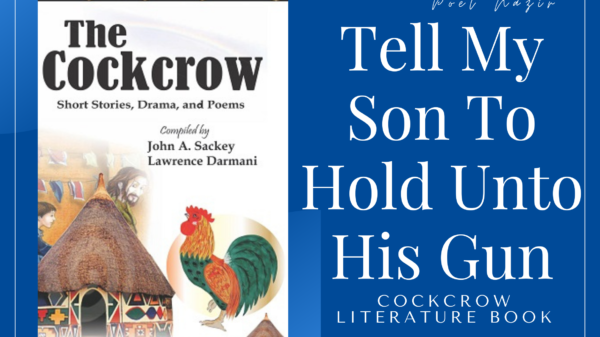Quatrains in poetry are poems with four lines that make up a verse(stanza). The term ‘quatrain’ is a word derived from the French word ‘quatre’ meaning ”four’. Every quatrain can be a whole poem on its own or a section within a poem with two or more stanzas.
Read Also: William Wordsworth’s Biography, Education, Affairs, Wife, Poems, Career
Table of Contents
Origin of Quatrain
The quatrain became much famous following the rise of polymath poets in the Ancient Greek and Ancient Rome periods. The polymath poets wrote about different varieties of subjects relating to poetry and other categories. During the Dark Ages(11th Century) period, Omár Khayyam, a philosopher, mathematician, astronomer and poet mainly used quatrain in a book with connected verses titled ‘Rubáiyát’ also called ‘quatrains’ in Arabic. The book was then translated by Edward Fitzgerald, an English poet in the 1800s. This helped out to gain attention as a poetic stanza.
Somewhere in the 19th century, a poet called Emily Dickinson also used quatrains in most of her works.
Purpose of Quatrain In Poems
As we all know, poetry is not an ordinary language for the layman’s understanding. Therefore, when writing poems, one is expected to take into account the kind of words, literary devices, stanzas and poetic lineations to use in the piece.
Features of Quatrain Poems
Rhyme Scheme: In quatrains, there are about 15 rhyme combinations that can be adopted. Poets can use just a single rhyme scheme or any form of the quatrain to write their poems. They can also choose to combine it with different forms of stanzas and rhyme patterns.
Length: A quatrain permit poets to fully express themselves in a poetry piece. It is long enough for a short narrative. It is spacious enough to contain enough of what a poet needs to say to his people in one, two or more verses.
Versatility: There aren’t any special restrictions on the length to choose for your quatrain. It can have different lengths. Quatrains contain lines of different rhyme schemes. They don’t also follow a specific pattern; it can be a free verse, with or without a rhyme scheme.
Read Also: Brief History Of English Literature – Simplified
Types Of Quatrains
Ballad Stanzas
Ballad Stanzas have the following rhyme scheme ABAB. The lines within the poem switch between iambic tetrameter and iambic trimeter(six syllables). Ballad is mostly used by songwriters because of its melodic rhythm.
Example of Ballad Stanzas
Written By: Francois Villon
Title: Ballad of the Gibbet
Brothers and men that shall after us be,
Let not your hearts be hard to us:
For pitying this our misery
Ye shall find God the more piteous.
Read Also: Sonnet 18: Shall I Compare Thee To A Summer’s Day a Poem By William Shakespeare
Heroic Stanza
Heroic Stanza is also called Elegaic Stanza. It follows the rhyme scheme ABAB or AABB. The heroic stanza is written in iambic pentameter; 10 syllables or 5 double bests and an emphasis made on every second vest.
Examples of Heroic Stanza
Written By: Thomas Gray
Title: An Elegy Written in a Country Church Yard
The curfew tolls the knell of parting day,
The lowing herd wind slowly o’er the lea,
The plowman homeward plods his weary way,
And leaves the world to darkness and to me.
Now fades the glimm’ring landscape on the sight,
And all the air a solemn stillness holds,
Save where the beetle wheels his droning flight,
And drowsy tinklings lull the distant folds;
Save that from yonder ivy-mantled tow’r
The moping owl does to the moon complain
Of such, as wand’ring near her secret bow’r,
Molest her ancient solitary reign.
Beneath those rugged elms, that yew-tree’s shade,
Where heaves the turf in many a mould’ring heap,
Each in his narrow cell for ever laid,
The rude forefathers of the hamlet sleep.
Read Full Poem Here ➡️ An Elegy Written in a Country Church Yard By Thomas Gray
Ruba’i
Ruba’i is also known by others as Persian Quatrain. The Ruba’i was first used by Omár Khayyam in the 11th century. English writers also discovered this and begun to use it in their works. It has a rhyme scheme of AABA.
Examples of Ruba’i
Written By Omár Khayyam
Title: A Book of Verses underneath the Bough
A Book of Verses underneath the Bough,
A Jug of Wine, A Loaf of Bread—and Thou
Beside me singing in the Wilderness—
Oh, Wilderness were Paradise enow!
Memoriam Stanza
A Memoriam stanza is a type of quatrain written in iambic tetrameter and eight beats per. This stanza was respectively named after ‘In Memoriam’, Alfred, Lord Tennyson’s poem.
Example of Memoriam Stanza
Written By Alfred, Lord Tennyson
Title In Memoriam
Ring out, wild bells, to the wild sky,
The flying cloud, the frosty light:
The year is dying in the night;
Ring out, wild bells, and let him die.
Ring out the old, ring in the new,
Ring, happy bells, across the snow:
The year is going, let him go;
Ring out the false, ring in the true.
Ring out the grief that saps the mind
For those that here we see no more;
Ring out the feud of rich and poor,
Ring in redress to all mankind.
Read Full Poem Here ➡️ In Memoriam a Poem By Alfred, Lord Tennyson
Envelope Quatrain
En Envelope Quatrain is a four-line stanza poem with the rhyme scheme ABBA. This is because the first and fourth rhyming lines that close the rhyming of the second and third lines. Envelope Quatrain is popular among the works of Italian sonnets.
Read Also: The Shape of Grief a Poem By Lilly Bechtel
Popular Examples Of Quatrain
The Chimney Sweeper by William Blake
When my mother died I was very young,
And my father sold me while yet my tongue
Could scarcely cry ” ‘weep! ‘weep! ‘weep! ‘weep!”
So your chimneys I sweep & in soot I sleep.
In Memoriam by Alfred, Lord Tennyson
Forgive these wild and wandering cries,
Confusions of a wasted youth;
Forgive them where they fail in truth,
And in thy wisdom make me wise.
Stopping by Woods on a Snowy Evening by Robert Frost
Whose woods these are I think I know.
His house is in the village though;
He will not see me stopping here
To watch his woods fill up with snow.
Elegy Written in a Country Churchyard by Thomas Grey
The curfew tolls the knell of parting day,
The lowing herd wind slowly o’er the lea,
The plowman homeward plods his weary way,
And leaves the world to darkness and to me.
First Fig by Edna St. Vincent Millay
My candle burns at both ends;
It will not last the night;
But ah, my foes, and oh, my friends—
It gives a lovely light!










